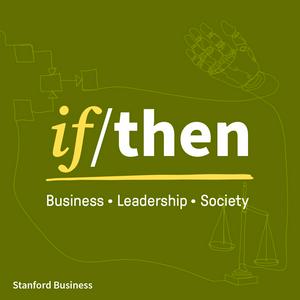“The ultimate price of a bad system falls on the public,” says Anat Admati, the George G.C. Parker Professor of Finance and Economics at Stanford Graduate School of Business and author of The Bankers’ New Clothes. “The Constitution did a lot to constrain the government, but the government has failed to constrain institutions in the private sector.” Simply put, Admati says the real problem isn’t just profit-hungry corporations, it’s the systems that let bad actors get away with it. From the opioid crisis and Boeing’s deadly 737 MAX disasters to the 2008 financial crash, Admati identifies how U.S. institutions failed — and shares the “incredibly sobering” realization that shattered her faith in the rules and those who make them. This episode features Dominic Cruz and Maya Kesselman Cruz, who perform in the live circus show "Dear San Francisco” at Club Fugazi.How do you think we can restore trust in business, government, and society? Email us at
[email protected]. Related LinksAnat Admati faculty profileThe Bankers’ New Clothes: What’s Wrong with Banking and What to Do about ItNo Rules, No Trust: How Accountability Shapes CommunicationAre Businesses Undermining Democracy?"Dear San Francisco" at Club FugaziSee Privacy Policy at https://art19.com/privacy and California Privacy Notice at https://art19.com/privacy#do-not-sell-my-info.

